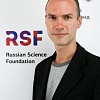Research Workforce and Careers in Science in Russia: view from the Russian Science Foundation
In
Log in if you are already registered
The main challenge for developing research careers in Russia has been effects of the aging of productive research community and lack of attractive long-term prospective for scientists in the economy.
These issues were brought by the group of outstanding scientists to the Russian President Vladimir Putin in September 2017 in Kazan city. Shortly after that meeting, the president initiated a large-scale support program for early-career researchers and a separate funding program targeted to integrate research with society and business needs.
Russian Science Foundation became administrator of these new funding programs. We certainly had to work quickly. And we did make it work! In the last three years, Presidential research funding programs designed by the RSF resulted in awards for 1633 young scientists under the age of 33 who wish to do their own research project independently (we call them individual postdocs grants). 772 youth research groups were funded with youth team grants. 80 laboratories grants were released with matching funds from industrial partners. This new line-up of granting instruments provides a clear step-by-step career prospective for postdoctoral fellows for the period of up to 12 years. And it was a wonderful experience for all of us.
Besides these competitive peer-reviewed grants by the Russian Science Foundation, there are “youth grants" offered by the Russian Foundation for Basic Research. Various other programs at both federal and regional level are supporting talented Russian youth.
Regrettably, this system of applying for grant after grant after grant can not be considered sustainable in long-run. There is still a great uncertainty for the scientists when all these starting packages come to end, when your grant period is over and there is no further access to reliable source of funding. A grant has a “career” character rather than a history. Competitive, short-term and highly goal-directed grant funding schemes cover less than 20 per cent of total public research funding in Russia. However, grants used as an indicator of performance at the grantor’s level do not always lead to a better performance of the researchers in the long-term, large institutional funding programs implemented by different ministries and agencies at national and international level.
Looking from the vantage point of 2020, and after all what has been achieved, we should encourage policy makers and research funders to seek a better coordination and optimization of all these multiple instruments emerged to support careers in science. We should focus our efforts on building the bridges between competitive grants schemes for fixed or known periods of time and non-competitive, directed, institutional research funding programs on both national and international levels such as brain studies, artificial intelligence, big data analytics, cybersecurity, self-driving cars, industrial robots, renewable energy, etc.
Finally, one more consideration. As we offered an exciting relocation bonus attached to the individual grants for postdocs, in the past three years we found out that only 45 researchers out of appx. 6000 proposals applied for such relocation from one Russian region to another.
Science is a mobile enterprise, but academic mobility and changing research environment still remain among core issues for research careers in Russia, even for young researchers. Many of them consider the existing opportunities at their current institution in long-term although they may not be satisfactory at present. They are not sure about the successful integration after moving, anticipate slow progress and do not feel secure elsewhere. To promote dynamic and flexible sustainable careers in science, featuring continuous learning, periodic renewal and employability based on its harmonious fit with skills, interests and values, the rules and the principles of career advancement should become open, transparent and clear to the scientists across the country.
International relations
Blog: Opportunities for international researchers in Russia
Rating: 1




